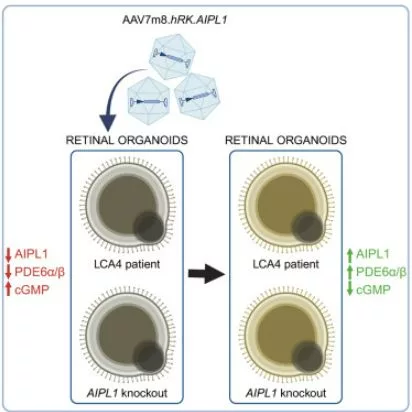This study focuses on Leber congenital amaurosis subtype 4 (LCA4), a severe retinal dystrophy caused by biallelic variations in the aryl hydrocarbon receptor interacting protein-like 1 (AIPL1) gene. LCA4 leads to early-onset vision impairment due to rapid retinal photoreceptor degeneration. Currently, no treatment exists for AIPL1-associated LCA4. The research explores the potential of adeno-associated virus-mediated AIPL1 gene replacement therapy using human retinal organoid models of LCA4. The study demonstrates that photoreceptor-specific AIPL1 gene therapy successfully rescues molecular features of LCA4 in these models. Specifically, the loss of retinal PDE6 is reversed, and elevated cGMP levels are reduced post-treatment. Transcriptomic analysis reveals changes associated with elevated cGMP levels and viral infection. Overall, the findings suggest AIPL1 gene therapy holds promise as a therapeutic approach for LCA4.
Keywords: Organoids, retinal




